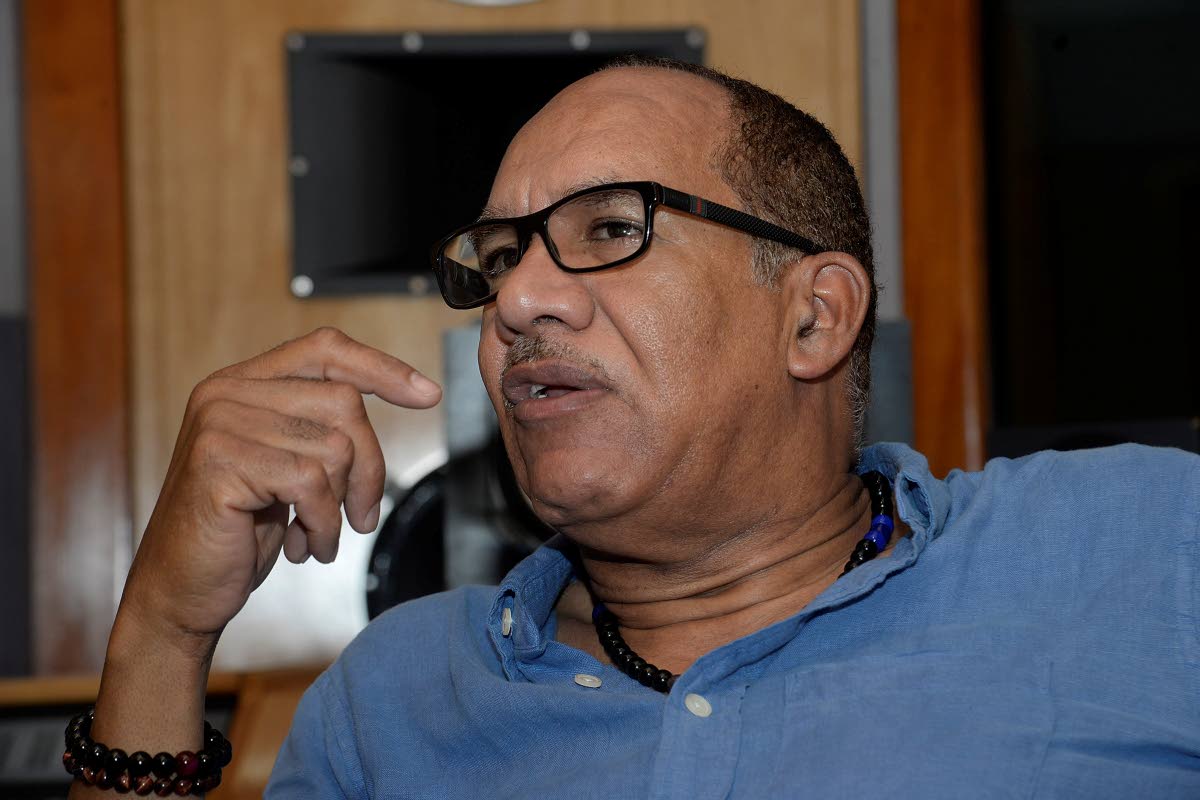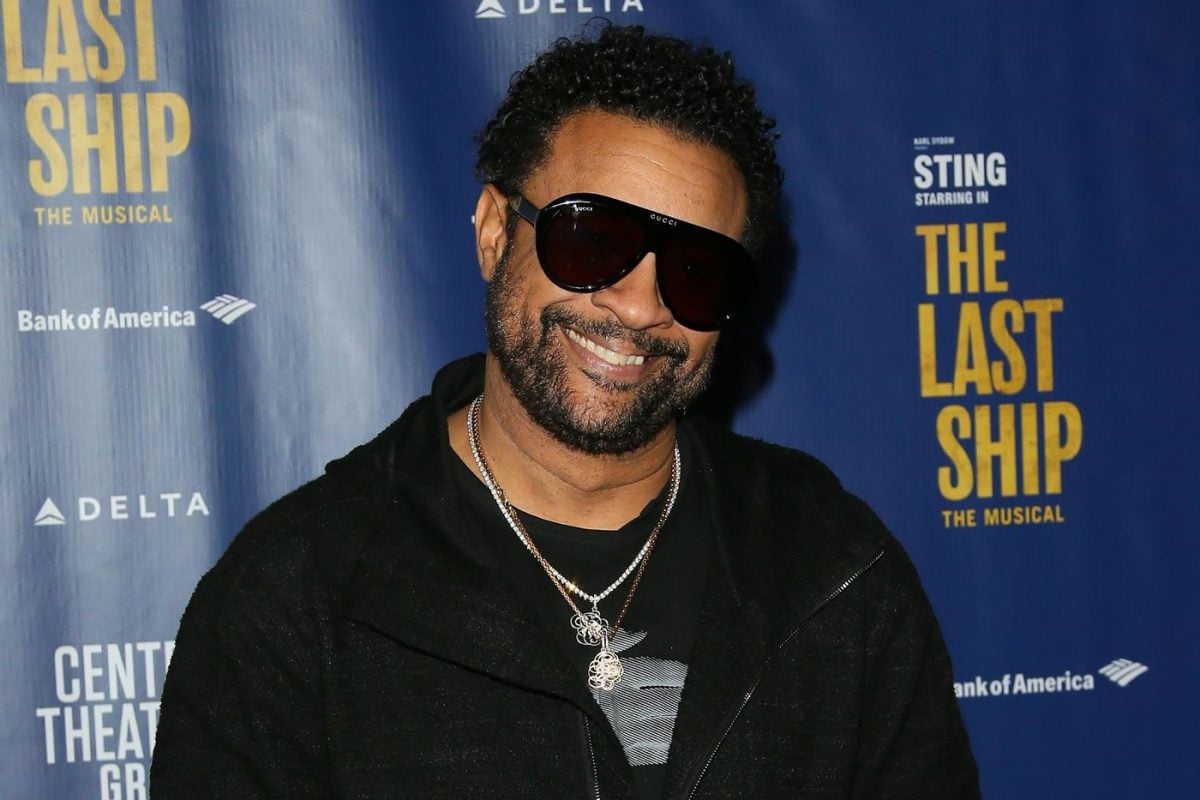Shaggy’s Former Manager Robert Livingston On What’s Holding Back Dancehall From Charting

Robert Livingston, the former manager of Dancehall icons Shaggy and Super Cat, has shared his insights into what he recognizes as the missing elements which are hindering much of the music coming out of Jamaica nowadays, from becoming huge commercial successes.
Speaking during an interview with Anthony Miller on Television Jamaica’s The Entertainment Report, Livingston said that on the technical side, a disconnect between melodies and hooks is the crux of the problem.
“I would say for me as a marketing person, I think sometimes we missing good hooks that everyone can relate to – and then the blend of the melody,” Livingston, who is a producer and songwriter said.
“You know we have great melodies, but sometimes we missing the hook, or sometime we missing something that can build that bridge,” the Big Yard boss added.
When asked whether he was surprised about the absence of “names from Jamaica” from the esteemed Billboard Hot 100 charts, Livingston said he found it astonishing.
“It is surprising because I think there is a few good songs that could have done well, if they had the push and someone (action-oriented manager) behind it,” he said.
When Miller asked Livingston why in commercial terms “does it seem that Dancehall and Reggae are kind of stuck right now and not hitting those heights that they have the potential to hit”, Livingston said, among other things, that many artists are in a state of complacency.
“I think we get complacent with the fans that we have, the support that we have and we jump to that because that’s what we see; that’s what we hear – some of us,” he explained.
“If you don’t go out in the market and see what’s out there, sometimes people don’t want to take the risk financially, musically. They think, ‘oh if I start to make songs to go out to the wider side of the market, I might fail’… so sometimes they make a choice, that: ‘you know what, I prefer to be hitting in Jamaica as a Dancehall artiste, get my shows in the Caribbean get my energy going… but I cannot give up something that I am sure of for something that I’m not sure of’,” he added.
On the artiste organizational side, he pointed out that there appears to be a dearth of knowledgeable and experienced artiste investor/managers, who will not only invest in, market and develop the artiste, but provide a sound management structure.
“Sometimes you even have the ambition, but who is the investors? Who is the manager? It’s a hard sell,” he told Miller, who then suggested that people of this calibre were “a dying breed”.
Livingston said at times artistes do not understand that they have to share the earnings with the people who bore the cost of managing and investing in them, seeking deals and propelling their careers, and so oftentimes incorrectly label them as “greedy” when they try to secure a return on their investments.
“And then the industry itself turns off a lot of these people, turn their volume down and blow them away, because they think the business is ungrateful, the investment is not secure, even the record label sometimes think a lot of the artistes are disloyal…,” he said.
Seemingly still affected by his shattered relationship with Dancehall heavyweights, Shaggy and Super Cat whose careers he honed in the 1990s, Livingston said loyalty was also an issue.
“You get bad name for what you do. You get bad name if you get paid or if you try to defend what you should get. It is very discouraging. It’s not something that you really like. And then you make a big star and the big star and you don’t talk or you do something that is really good and the people give you credit for it and then you find that you are fighting to get your respect,” he mused.

“When you do a song the amount of percentage that is added to that song before it reaches to the consumer hands, you will be surprised… And if people like myself who they sometimes term businessman – and who have the ability to break a talent, sometimes we need to get paid… That is how the business is from day one. It isn’t like any other business,” he explained.
He added: “But I personally think that the new generation has their own agenda. They really focus on owning their own things, so it might stay in that picture for a long time. Because they want it all.”
In 2011, Livingston and Shaggy ended what has been dubbed one of the most successful partnerships in Reggae/Dancehall history. He had signed Shaggy back in 1993 months after record producer Sting International introduced the two. At the time, Livingston had just parted ways with Super Cat and had said he was not very interested in signing anyone else.
However, during the partnership between the two in the ensuing years, they released a slew of hits including Oh Carolina and Boombastic. They scored platinum with the release of Shaggy’s Hot Shot album which featured the mega hits It Wasn’t Me and Angel, which went to number one worldwide.
In 2019, Livingston told The Gleaner in an interview, that after eventually agreeing to sign Shaggy, he told the ex-Marine that he “wanted a 60-40 deal, because I was the one who would be making the investment”, adding that it was a reasonable deal as “many managers at that time, were signing 50-50 deals”.
According to The Gleaner, after two decades of hard work, which saw the artiste selling diamond and earning multiple international awards, “the relationships ended on the same note as that of Super Cat’s. Separation”.
“It hurt me to my heart to see that I build two monster acts and they don’t talk to me,” Livingston had lamented at the time.
